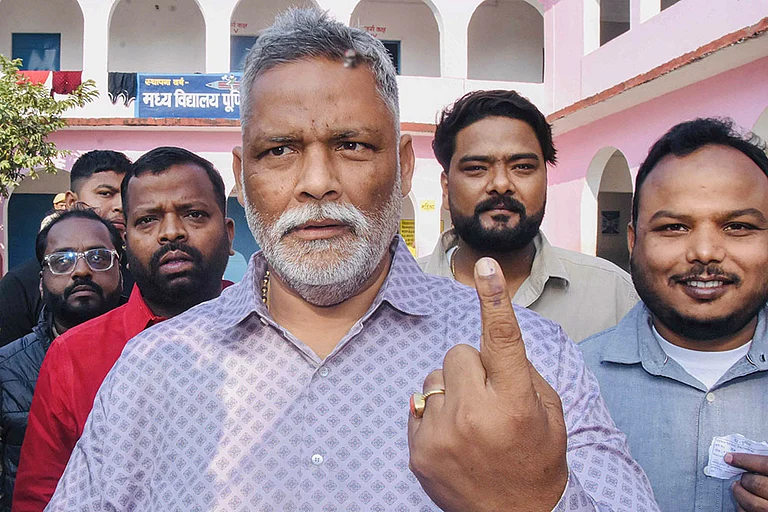
Instagram influencer Madri Kakoti (@dr.medusssa) alleges 947 voters registered under one address in Nidani, Bihar.
Cites ECI manual to dispute Election Commissioner Gyanesh Kumar’s claim of 'house number zero' for homeless voters.
Bihar’s Special Intensive Revision has raised numerous about voter list irregularities.
An Instagram video by influencer Madri Kakoti, who posts under the handle @dr.medusssa, has drawn attention to alleged irregularities in the voter list of Nidani village in Bihar, where records apparently show 947 people registered at a single house number.
In her post, Kakoti compared the entry to Doctor Who’s TARDIS, ordinary on the outside but impossibly large within, and alleged that the Election Commission of India (ECI) may be using such listings to obscure fake or duplicate entries in electoral rolls. Doctor Who is a British science fiction TV series that features a spaceship named TARDIS and the character 'The Doctor'.
Referring to the ECI’s own manuals, she questioned recent remarks by Election Commissioner Gyanesh Kumar, who had defended the practice of assigning “notional house numbers” to homeless citizens to ensure they are not excluded from voting. Kumar had said this was recorded as “house number zero.” Kakoti countered that the manual clearly states notional numbers begin from one, not zero, and are applied only after verification by Booth Level Officers (BLOs). She added that in such cases, even the spot where a person regularly sleeps, such as under a lamppost, can be recorded as a permanent address.
According to Kakoti, the situation in Nidani does not fall under that rule, since residents already have permanent houses documented with GPS-tagged records. She asked why, then, nearly a thousand voters had been grouped under a single address, arguing that clustering names in this way could make it difficult to track fake entries during post-election audits and could also provide scope to add more voters to the same house number later.
“The ECI’s own rules empower Electoral Registration Officers to correct, add or delete entries on their own if irregularities are found,” Kakoti said, adding that the real test now is whether the Commission acts on the information.
The video has been widely shared online, with Kakoti framing the issue as one of transparency and accountability in elections.
The ECI has not yet responded to the claims in the video, which have not been independently unverified so far.
Bihar is currently undergoing a Special Intensive Revision (SIR) of its electoral rolls, the first such overhaul since 2003, to prepare for the 2025 Assembly elections. Under SIR, every elector not on the 2003 roll must submit one of 11 prescribed documents, such as a family register or educational certificate, to prove citizenship, as commonly used IDs like Aadhaar and EPIC are excluded.
The exercise involves house-to-house verification by Booth Level Officers (BLOs) and requires massive citizen participation. Critics, including political parties and civil society, argue that the process, conducted under tight deadlines, may disenfranchise vulnerable groups, including migrants, the poor and the elderly. The Supreme Court is currently adjudicating petitions that allege procedural lapses and seeks to widen the set of accepted documents, raising larger questions about the oversight and fairness of the voter-list revision.


























